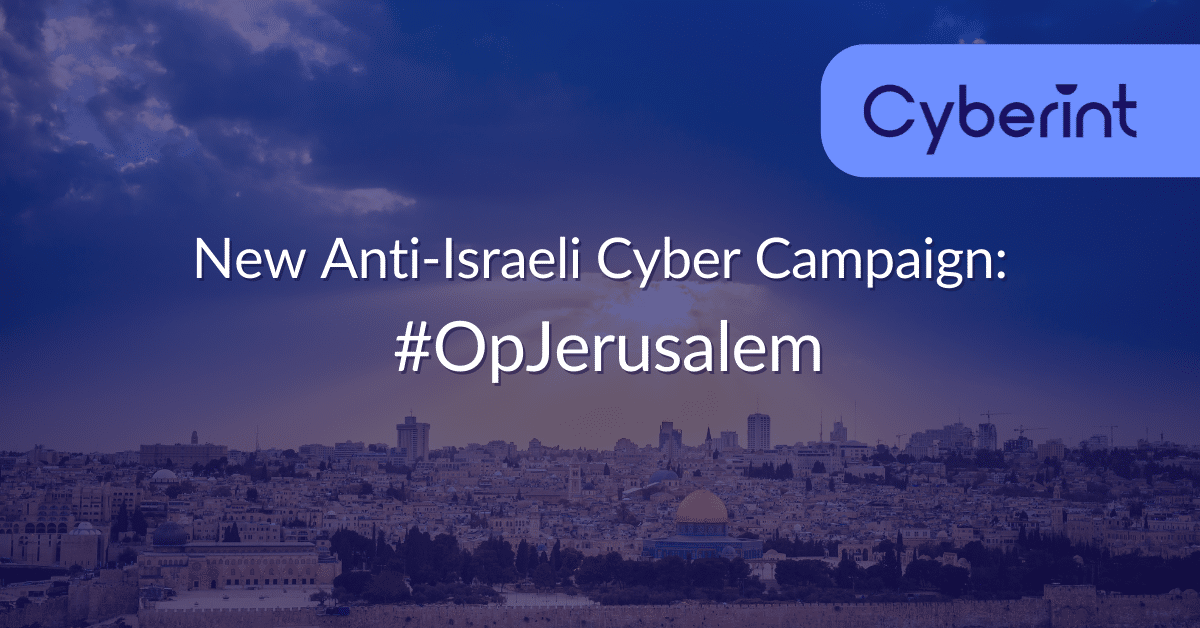Introduction
Following the #OpIsrael campaign that culminated on April 7th, an additional campaign named #OpJerusalem which targets Israeli websites is now in motion, intended to launch on April 29th, marking Iran’s annual Al-Quds Day and the end of the Muslim holy month of Ramadan.
Iran initiated Al-Quds Day, or Jerusalem Day, in 1979, the year of the Islamic Revolution. It commemorates it with anti-Israel speeches, events, and threats to “liberate Jerusalem from Israeli occupation”. In the last 3 years, the campaign has expanded to the cyberspace and cyber attacks on Israeli targets are highly expected to occur on that day, presumably by anti-Israel hacktivists who seek to spread propaganda messages through websites corruption, DDOS Attacks, and even ransomware and DB leakage.
In general, the past few months have been especially sensitive in Israel, with several national security events including the uprise in the West Bank region, terrorist attacks in central Tel-Aviv, riots in the Temple Mount and continuous attempts to incite the region by Hamas.
Recent Activity Against Israeli Companies
Cyberint has monitored several social media accounts and pages of anti-Israeli hacktivists that are known to participate in former ‘OpJerusalem’ campaigns, in order to identify any groups that might also partake in activity against Israel within the new upcoming campaign, or to detect any intention to target particular Israeli companies.
We have found that most of the ‘OpJerusalem’ activity on the social media platforms is related to the physical space as a lot of anti-Israeli hacktivists call to ‘free Palestine’ and that ‘Jerusalem is the capital of Palestine’.


